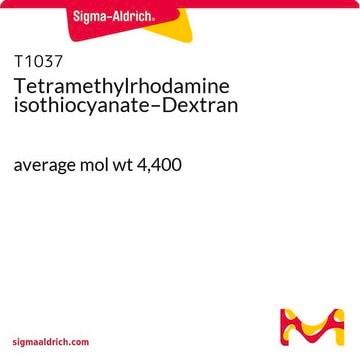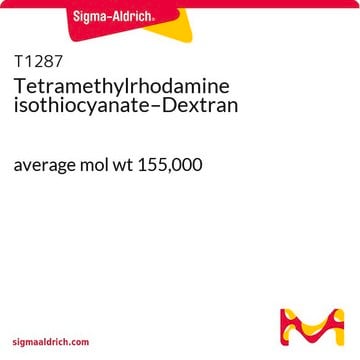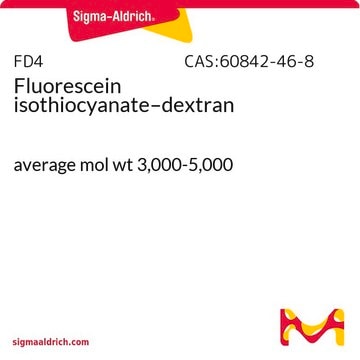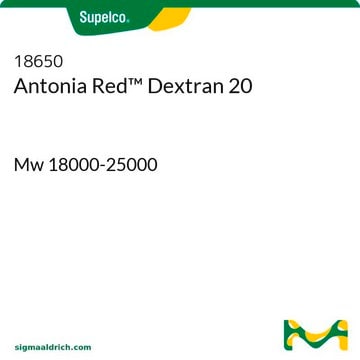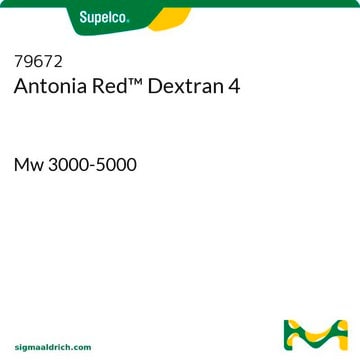42874
Tetramethylrhodamine isothiocyanate–Dextran
average mol wt 40,000
Synonym(s):
TRITC-Dextran 40, TRITC-Dextran
About This Item
Recommended Products
biological source
synthetic
Quality Level
form
powder
mol wt
average mol wt 40,000
extent of labeling
0.001-0.008 mol/mol TRITC glucose
fluorescence
λex 550 nm; λem 577 nm±5 nm in 0.1 M Tris pH 8.0
application(s)
cell analysis
Looking for similar products? Visit Product Comparison Guide
General description
Application
Storage Class Code
11 - Combustible Solids
WGK
WGK 3
Flash Point(F)
Not applicable
Flash Point(C)
Not applicable
Choose from one of the most recent versions:
Already Own This Product?
Find documentation for the products that you have recently purchased in the Document Library.
Customers Also Viewed
Articles
Explore FITC-labelled polysaccharides and their properties, including impact of molecular weight on molecule dimensions.
Explore FITC-labelled polysaccharides and their properties, including impact of molecular weight on molecule dimensions.
Explore FITC-labelled polysaccharides and their properties, including impact of molecular weight on molecule dimensions.
Explore FITC-labelled polysaccharides and their properties, including impact of molecular weight on molecule dimensions.
Our team of scientists has experience in all areas of research including Life Science, Material Science, Chemical Synthesis, Chromatography, Analytical and many others.
Contact Technical Service